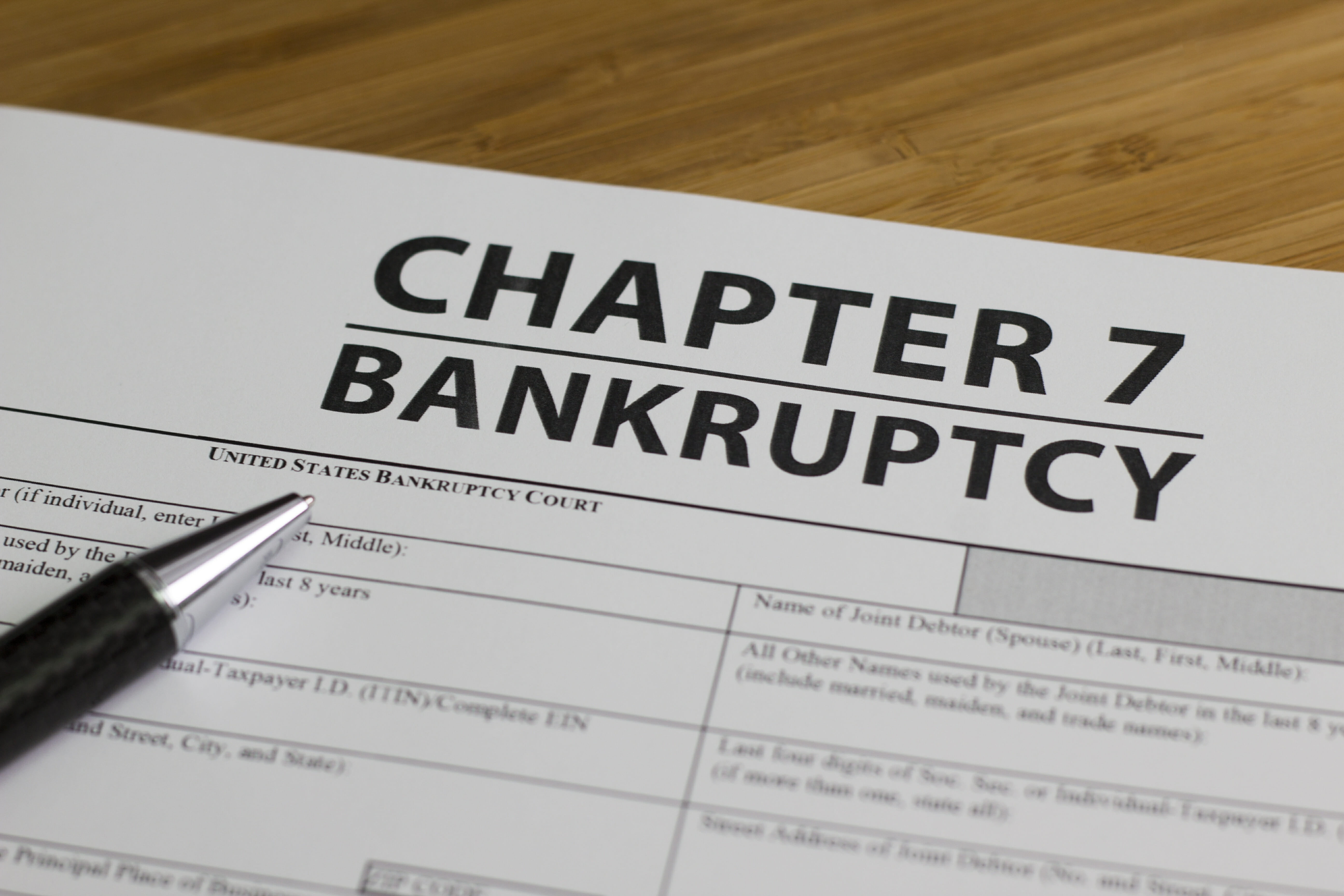Chapter 7 Bankruptcy

Chapter 7 bankruptcy, also known as liquidation bankruptcy, clears most of your unsecured debt. Unsecured debts may include credit cards debts, personal loans or medical bills.
If you find yourself in a financial difficulty that makes it hard for you to pay your bills or other monthly expenses, you can opt for Chapter 7 bankruptcy. Filing for bankruptcy does not make you a lesser person. It is simply a way to reset your finances and forge ahead.
How Chapter 7 bankruptcy works
Chapter 7 bankruptcy offers you an avenue to manage your debts but you may need to part with some of your possessions.
Once you file for Chapter 7 bankruptcy, your creditors can no longer collect further payments, garnish your wages, evict you, foreclose your home, prevent you from using your home utilities or even bother you with those annoying collection calls and letters. This is because the court will place a temporary stay on your current debts know as the “Automatic Stay” as soon as you file. This automatic act of the court also means that the court will take have legal control of property with a bankruptcy trustee to oversee your case. That doesn’t mean that someone from the court will come and take your furniture.
The bankruptcy trustee collects the debtor’s nonexempt assets (assets you are not allowed to keep) and sells them. The proceeds go into payment of creditors. Even so, Chapter 7 bankruptcy cases are usually ‘no asset’. This means that the debtor’s property is usually exempt or that the trustee is not intending to pursue any assets that the debtor owns
This process might take four to six months after which the court will discharge the remaining debts you owe. This may include credit card debt and medical bills. However, this is not applicable to certain unsecured debts like alimony, some student loans, and child support and so on.
Nevertheless, your creditor has the right to insist that certain debts will not be discharged. The court may also agree with this.
Eligibility for Chapter 7 bankruptcy
To qualify for Chapter 7 bankruptcy you need to meet the following requirements:
- Completion of credit counseling course from an approved agency, 180 days prior to filing for bankruptcy.
- You have little or no disposable income.
- Not filing of Chapter 7 bankruptcy in the past eight years.
- You can’t have successfully completed a Chapter 13 plan within the last 6 years.
Pros and cons of filing Chapter 7 bankruptcy.
Weigh the following pros and cons before making your decision.
Pros
- Chapter 7 bankruptcy protects you from aggressive collection actions from creditors and offers immediate relief from them.
- It discharges most of your debts.
- Filing the bankruptcy can improve your access to credit.
- You can usually keep the majority (or all!) of your assets, depending on state exemptions.
- It gives a clean bill to start afresh.
Cons
- Chapter 7 bankruptcy can adversely affect your credit as it can remain on your credit report for 10 years.
- It may affect your ability to secure a new mortgage.
- You may lose your credit cards.
- You may have to sacrifice your luxury possessions.
Filing Chapter 7 bankruptcy could be your last resort when you have no way of paying off your financial debts, especially debts such as medical bills or unsecured credit cards. It is not a shameful act but an act of courage. You can recover from bankruptcy and rebuild your finances.
